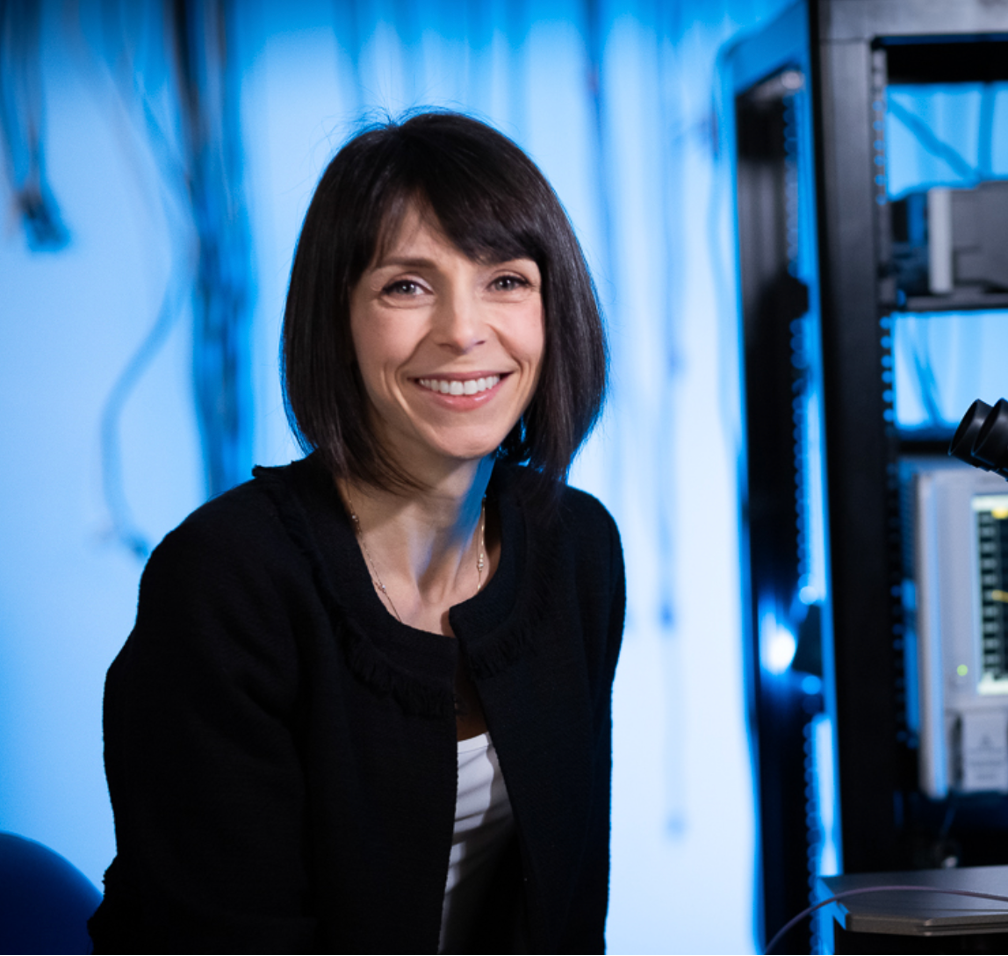Please join us for the October MIT.nano Seminar Series!
Dana Weinstein
 Elmore Family School of Electrical and Computer Engineering
Elmore Family School of Electrical and Computer Engineering
Purdue University
Date: Monday, October 16, 2023
Time: 3:00 PM - 4:00 PM ET
Location: Grier Combined (34-401) or join via Zoom: mit.zoom.us/j/99085865490
Reception to follow.
Register
To receive event announcements, sign up for our email list.
Abstract
Micro-Electromechanical Systems (MEMS) offer compact, high-performance hardware solutions for sensors and actuators, communication, timing, ultrasonic imaging and stimulation, and energy harvesting. If MEMS can be embedded within integrated circuits (ICs), whether in standard CMOS or in emerging 3D heterogeneously integrated (3DHI) platforms, trusted foundries can dramatically increase their microelectronics capabilities with little to no modification to their process flow or packaging. Moreover, embedded MEMS devices could provide chip-scale security through uniquely designed signatures.
This talk will focus on emerging opportunities for realizing MEMS functionality in ICs – both standard CMOS and emerging platforms. Weinstein will consider the design of acoustically waveguided modes achieved within standard CMOS technology. Methods for mode selection and optimization, confinement, and focusing will be discussed. Weinstein will show both analytically and experimentally the ability to realize high-Q resonance modes in multiple IC platforms ranging from ~100 MHz to ~30 GHz. Dispersion engineering of the CMOS-stack acoustic metamaterial, under strict design rule check (DRC) constraints, to reduce spurious modes and minimize radiative losses is discussed. Weinstein will also consider a complete model of these electromechanical devices for ease of system-level integration using industry-standard circuit design tools and process design kits (PDKs) provided by the foundry. Looking forward to emerging materials in CMOS, this talk will also address opportunities and challenges to ferroelectric transducers, typically implemented for ferroelectric random access memory (FRAM).
Biography
Dana Weinstein is a professor in Purdue’s Elmore Family School of Electrical and Computer Engineering and Senior Research Fellow of the Krach Institute for Tech Diplomacy. Prior to joining Purdue in 2015, Dr. Weinstein joined the Department of Electrical Engineering and Computer Science at MIT as an assistant professor, and served as an associate professor there between 2013 and 2015. She received her B.A. in Physics and Astrophysics from University of California, Berkeley in 2004 and her Ph.D. in Applied Physics in 2009 from Cornell, working on multi-GHz MEMS.
Weinstein is a Purdue Faculty Scholar and a recipient of the NSF CAREER Award, the DARPA Young Faculty Award, the first Intel Early Career Award, the first TRF Transducers Early Career Award, and the IEEE IEDM Roger A. Haken Best Paper Award. Dr. Weinstein’s current research focuses on innovative microelectromechanical devices for applications ranging from MEMS-IC wireless communications and clocking to micro robotic actuators and ultrasonic stimulation.
